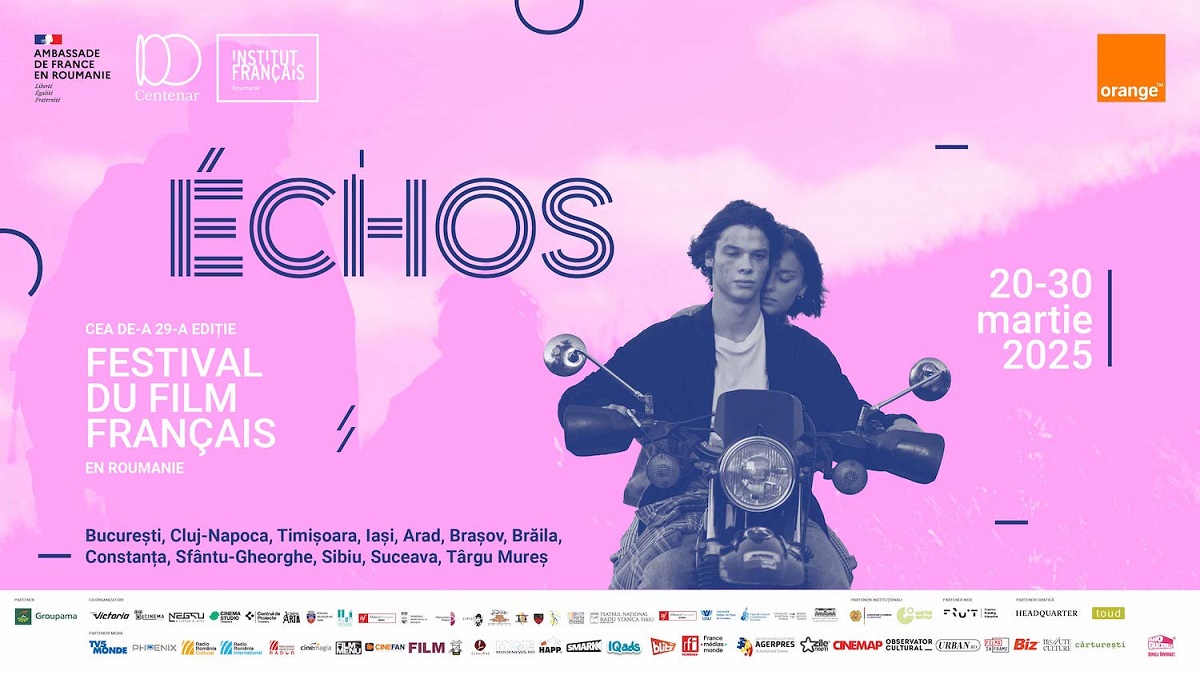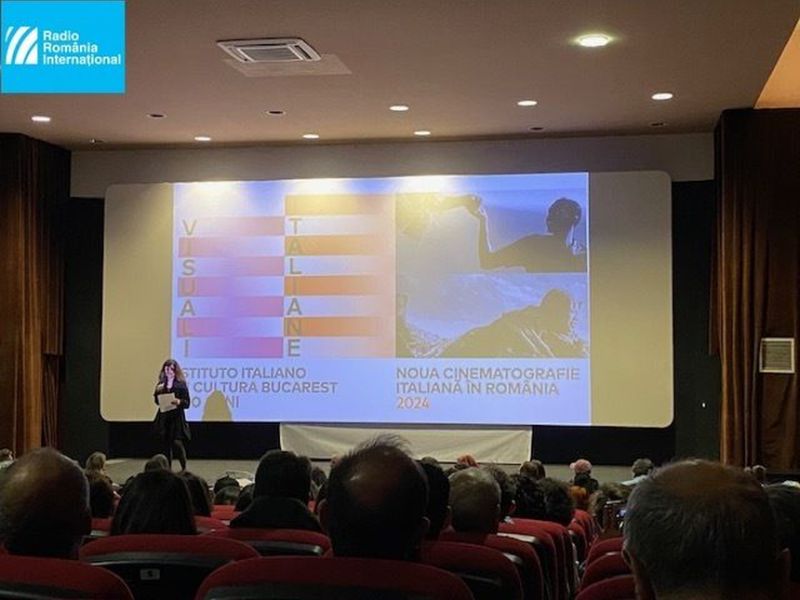The French Film Festival
The 24th edition of the French Film Festival was held between September 23 and October 4, 2020 simultaneously in Bucharest and another 10 cities of Romania

Corina Sabău, 24.10.2020, 13:16
The 24th edition of the French Film Festival was held between September 23 and October 4, 2020 simultaneously in Bucharest and another 10 cities of Romania: Cluj-Napoca, Timişoara, Iaşi, Arad, Braşov, Brăila, Constanţa, Sfântu Gheorghe, Sibiu and Suceava. The 94 films in the festival were screened on big screens both indoors and outdoors. We talked to Ioana Dragomirescu, the coordinator of the Elvire Popesco cinema hall in Bucharest and the festival’s selector, about this year’s edition of the French Film Festival which took place under the motto “Le film français au féminin’ — ‘Women in French film’. The festival focused on women’s cinematographic creation, bringing to the forefront women film producers, actresses and remarkable female characters.
“I have chosen this theme because it is quite topical. In the cinematographic industry, just like in many other industries, there is still gender inequality, as most directors and scriptwriters are men. Of course, actresses are visible, but I think it is important to equally highlight women’s creative potential. They should not be regarded simply as something nice to look at, as has happened so far. That is why we have wanted, through this festival, organized annually by the French Institute in Bucharest, to remind everyone that it is important to acknowledge women’s perspective on reality, that their perspective should be known and seen by all of us. The polemics that led to the emergence of the ‘Me Too’ actions in the US is known around the world. There was much talk about nominations to the Oscar or Cesar Awards, talks generated by the fact that men always have the upper hand. This trend is also visible in the Romanian film industry, where, in the past ten years, only 19% of the Romanian film productions have been directed or co-directed by women. To have equal representation of both men and women, we need to go a long way. Through this festival we have wanted to bring our own contribution in this sense, and to sound the alarm as to this gender inequality. To select the films for the festival was not difficult, because, to be honest, there are many, good-quality films directed by women or featuring women in the main roles.”
We also spoke with Ioana Dragomirescu about the structure of this edition of the French film festival:
“Films were divided into the 3 already-known categories. ‘Focus on young directors’ is the first category, aimed at introducing young talents, male and female directors at the start of their careers, who made one or two feature films. The Panorama of French Films of the Year is a wider and more visible section, under which we try to bring in the most remarkable films of the current year, films that have had box office or critical success, as well as success in festivals. The third section of the festival, a more niche section, is in collaboration with the prestigious criticism review Cahiers du Cinema, and with Joachim Lepastier, one of the critics with the review, who helps us every year to organize a selection around a given topic. This year the theme was Vive les insoumouses, an homage to our rebellious muses, both in front and behind the camera. For this section, this year we had a selection of films made entirely by women. These films showcase characters that are absolutely remarkable, which at their time were revolutionary, either because they dealt with preconceived ideas, or of a whole industry. In this section I would suggest two titles, and I would begin with the title that provides the title of the section, the documentary Delphine et Carole, which takes the audience back to the feminism of the 70s. We recommend this documentary, featuring French actress Delphine Seyrig and Swiss filmmaker Carole Roussopoulos, who militates with a camera on her shoulder to promote the right of women to have their own artistic viewpoint. As the slogan of the festival we borrowed a phrase from Delphine Seyrig herself, who says in the documentary that it was time for women to film themselves. In addition, this year we have proposed a selection of short film made more than a century ago by Alice Guy, the first woman filmmaker in the history of cinema.”
Part of the festival Le film français au féminin was also Rezidenta FemArt as a partner, which is a project run by the Romanian Association of Women in Cinema. As part of this residency, five Romanian directors from Romania who are just starting in the business took part in an intensive week of working with experts, but also in a series of screenings as part of the festival, in master classes, and in pitching sessions, partially hosted by the French Institute in Bucharest. The festival also brought homage to the great filmmaker Agnes Varda, by showing her film Varda par Agnes.





























